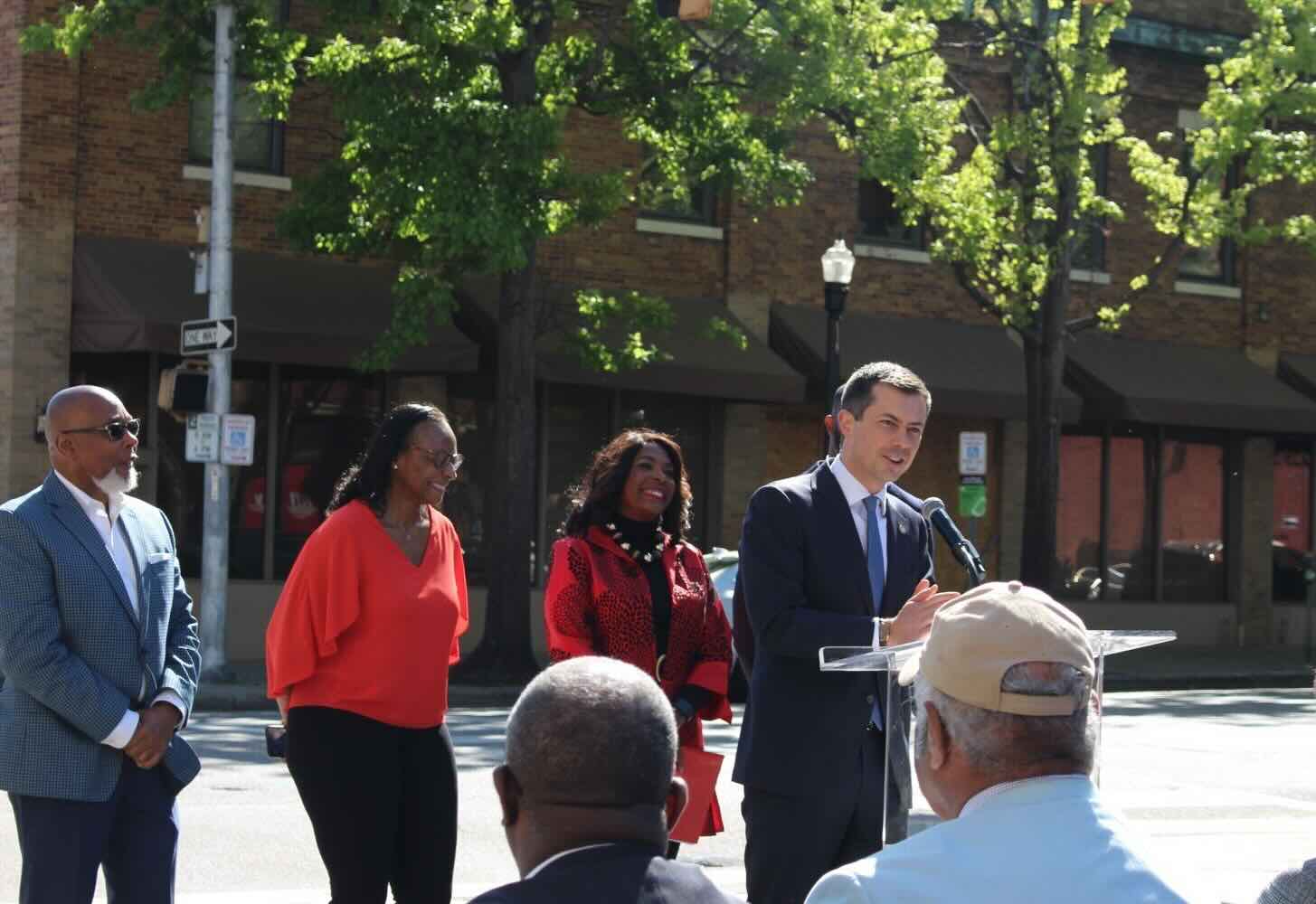As more Americans receive COVID-19 vaccinations and we look to rebuild our economy, mission investors have a chance to save local businesses and ensure we are not caught in a K-shaped recovery that leaves many behind.
Employee ownership, through which businesses share assets and agency with the workers who make the wealth, is a proven path to a more equitable economy.
A growing number of funds dedicated to transitioning businesses to employee ownership are hitting their stride. This means investors with an interest in employee ownership need no longer take on the burden of searching out direct investments. In The Democracy Collaborative’s recent report, Opportunity Knocking, we identify a dozen existing and emerging investment funds that are using employee ownership conversions as a strategy to improve jobs and grow wealth for low-wage workers.
A diverse group of investment funds cover a broad range of small- and mid-size businesses, from BIPOC-led companies in essential industries, to clean-energy businesses, to the restaurant industry, which will need to be re-invented post-COVID. Some funds invest in conversions to Employee Stock Ownership Plans, or ESOPs, in which shares are held in a retirement trust. Others are worker cooperatives, in which worker-members own and govern the business together.
Some funds are leveraging ESOP tax advantages for manufacturing, food and beverage, and health care sectors. Others are converting home care and childcare businesses to cooperative ownership. The Kendeda Fund in 2019, made a $24 million investment to four organizations advancing employee ownership.
Conversion capital
At The Democracy Collaborative, we have been working to advance employee ownership for many years. Puzzled by the lack of growth in the number of employee-owned firms in the US since the 1980s, we began to study the obstacles.
Our research led us to conclude that the missing agent needed to spur more employee ownership is capital. In partnership with Kendeda Fund, we helped design and launch the Fund for Employee Ownership at the Evergreen Cooperatives of Cleveland. That fund recently helped a coffee shop chain with five locations employing 37 people survive the COVID-19 pandemic – by purchasing the firm and helping it to convert to employee ownership.
Employee ownership is a proven alternative to capital ownership, which, in the year of a global pandemic, has driven the stock market to all-time highs while leaving millions of workers unable to feed their families. Numerous studies find that employee-owned firms increase income, assets, and savings among workers; are more productive and less likely to fail; and are more committed to their local communities. In 2020, employee-owned firms were less likely than peer firms to lay off employees, even when the owner did not participate in the Paycheck Protection Program.
After a year of essential workers putting their lives at risk, employee ownership is a way to bring them financial security and prosperity. ESOPs hold about $1.4 trillion in retirement assets for participants. ESOP participants have on average $130,000 in their accounts, double the median retirement savings of the average American.
So how do we grow the number of employee-owned firms beyond the current 7,000? We believe what is needed most is risk capital—organized capital capable of competing with the “knock on the door” from private equity or corporate acquirers. Impact investors hold the power to provide that capital and drive a revolution in enterprise ownership that would result in a far more equitable and just economy, more resilient to future shocks.
Range of returns
Fortunately, opportunities to invest in employee ownership are rapidly growing. These funds range from mission-driven funds like the Fund for Employee Ownership, which offers investors concessionary returns, to private equity funds with mid-range returns from 12% to 15%.
- Workers of Color. Emerging funds include the A&H Legacy Fund, being developed by Apis & Heritage Capital Partners in partnership with the co-op developer Democracy at Work Institute. A minority-led firm focused on business closure crisis in Black and brown communities, the fund addresses the racial wealth gap by converting businesses with large workforces of color to employee ownership. The plan is to raise $25 to $40 million for a ten-year, closed-end fund targeting a net internal rate of return of 15%. Additional support came from Middle Bridge partners Walt Mayo and Michael Brownrigg, early proponents of employee ownership buyouts.
https://impactalpha.com/turning-the-small-business-crisis-into-an-opportunity-for-equitable-employee-ownership/ - Private Equity. Mosaic Capital Partners, a pioneer in bringing private equity to employee ownership conversions, manages a $165 million fund targeting middle market firms. The fund offers investors competitive private-equity returns. Mosaic has created scores of employee-owners as a natural byproduct of selling their portfolio firms to ESOPs. Its portfolio includes small manufacturers, such as Galfab in upstate New York; food businesses such as Pete’s, a leading lettuce brand grown in hydroponic facilities on the west coast; and high-tech businesses such as NuSource Financial, a provider of technology-integrated solutions for regional and community banks and credit unions. Mosaic has been thrilled with the impact of its investment strategy on employee wealth building and is now seeking to measure employee benefit at the portfolio level. Other private equity options: Long Point Capital, Endeavor Capital and New State Capital Partners.
- Nonprofit loan funds. Accelerate Employee Ownership is an initiative of Shared Capital Cooperative and Project Equity, a nonprofit that advocates for and supports employee ownership conversions. When investors loan capital to Shared Capital Cooperative, they receive returns between 2% and 6%, depending on the size and duration of the loan. Accelerate Employee Ownership has financed multiple transitions to cooperative ownership in the last few years, including Adams & Chittenden Scientific Glass in Berkeley, Calif.; Cal Solar, a solar installer in rural Grass Valley, Calif.; and Happy Earth Cleaning, a Minneapolis green cleaning company.
- Independent sponsors. The Torana Group, a Chicago-based impact firm dedicated to ownership transitions that benefit women and people of color, is developing an independent-sponsor model. It finances employee ownership transitions in middle-market firms, using a range of structures, including employee-owned trusts. The target net IRR is 10% to 13%. The firm prepares investment opportunities and partners with select family offices on the transactions.
- Regional Funds. The Business Legacy Fund, by Co-op Cincy with Seed Commons, is building a network of cooperatives in Southwest Ohio. It’s modeled on the pioneering Evergreen Cooperative model and Fund for Employee Ownership in Cleveland. Cooperative Fund of New England makes loans to worker-owned businesses in New England and New York with the goal of promoting economic, social, and racial justice.
Many impact investors have expressed frustration that opportunities have tended to concentrate at polar ends of the risk-return spectrum — fixed-income investments with low returns, or high-risk venture investments. Employee ownership conversion funds fill the missing middle of the risk-return spectrum with low-risk investments in mature firms. Risk is further limited by ESOP tax advantages, which free up cash that can be used to strengthen the business prior to the investors’ exit and leave a healthy firm for employee owners.
Taking employee ownership conversions to scale will require that institutional investors and high net worth individuals step up and demonstrate how employee ownership offers real opportunities for both impact and returns.
American baby boomers own 2.3 million small businesses employing nearly 24 million people. As these owners look to retirement, particularly in a post-COVID world, mission investors are uniquely positioned to begin radically transforming who owns small business, helping to build an economy that works for all.
Marjorie Kelly is senior fellow and executive vice president of The Democracy Collaborative.
Diane Ives leads the employee ownership strategy at the Kendeda Fund.











